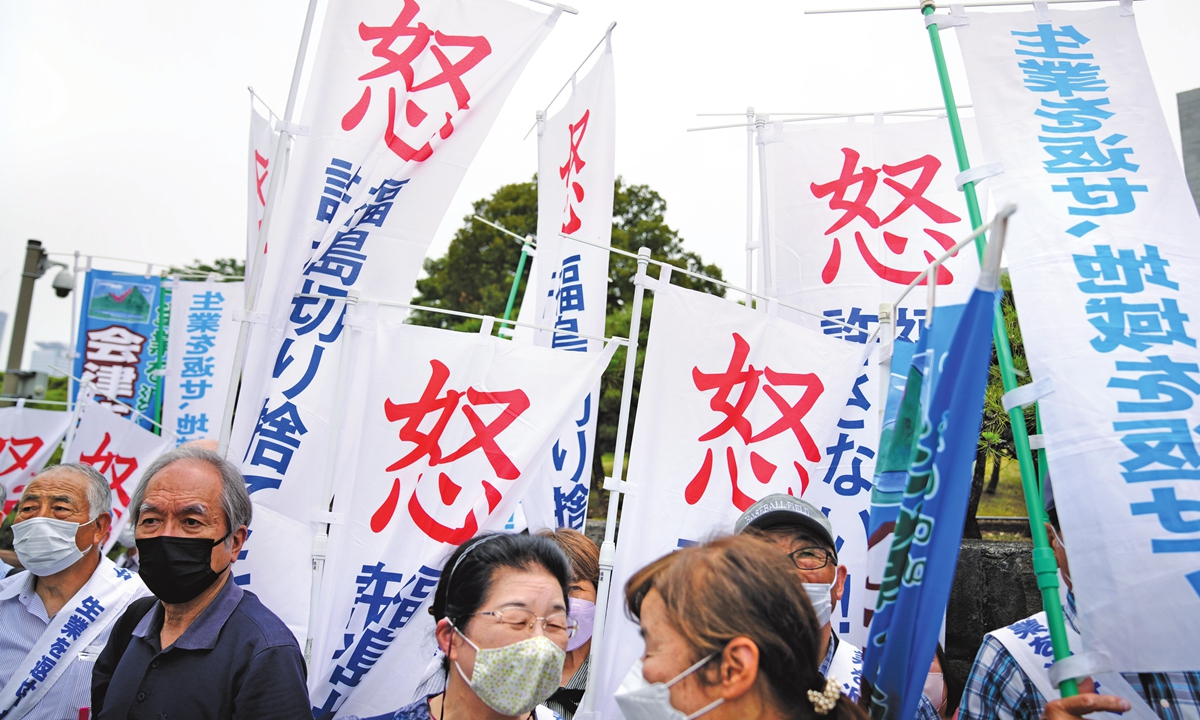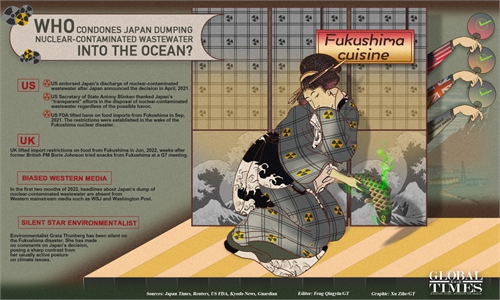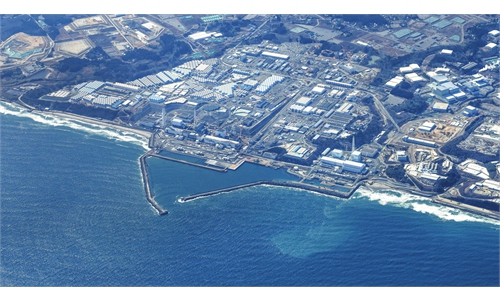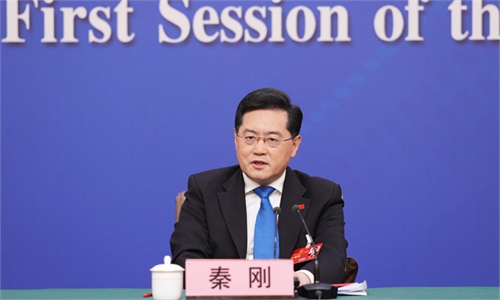International community urges Japan not to arbitrarily start nuclear-contaminated wastewater dumping

Plaintiffs and their supporters gather in front of the Tokyo Supreme Court in Japan on June 17, 2022. Japan's Supreme Court ruled Friday that the government is not liable for the 2011 Fukushima nuclear crisis, dismissing evacuees' demands that the state, not just the utility, pay compensation for damage to their lives. Photo: VCG
With the scheduled Fukushima nuclear-contaminated wastewater dumping project approaching, many countries, organizations and officials concerned in the international community have expressed their deep worries about or firm opposition to Japan's plan, urging the country not to dump the wastewater arbitrarily.
During a press conference on Tuesday on the sidelines of the first session of the 14th National People's Congress, Chinese Foreign Minister Qin Gang expressed concern about Japan's nuclear-contaminated water discharge from the Fukushima nuclear power plant, crippled in the March 2011 earthquake and tsunami disaster, into the sea, saying it is a major issue vital to the marine environment and human health.
Qin urged Japan to handle the issue in a responsible manner.
On Monday, Liu Jing, deputy director of the China Atomic Energy Authority, told a meeting of the International Atomic Energy Agency (IAEA) Board of Governors that the IAEA has neither completed its assessment of Japan's disposal plan nor drawn specific conclusions, and all of its three reports published so far pointed out the plan's non-compliance with the agency's safety standards and suggested improvement.
However, Japan has arbitrarily approved its own plan and expedited the construction of discharge facilities, ignoring authoritative advice from the IAEA and the opposition from both at home and abroad, Liu said, criticizing Japan's move as "an extremely irresponsible act."
Liu stressed that Japan should not use the assessment from the IAEA technical task force as a free pass on its discharge plan.
South Korea's Second Vice Foreign Minister Lee Do-hoon, who is visiting Austria, urged the Japanese government to take a responsible attitude toward the radioactive water dumping at the IAEA meeting on Monday.
Lee urged the IAEA to release a comprehensive assessment report containing the verification results of the water discharge plan as soon as possible, and stressed the need for experts and research institutes from interested parties including South Korea to participate in the review.
Also, alarmed at Japan's plans to dump nuclear-contaminated wastewater, leaders of Pacific island nations are calling on the Japanese government to immediately call a halt to such plans, according to the Pacific News Service.
Papua New Guinea's Minister for Fisheries and Marine Resources, Jelta Wong, said on Monday that "if this nuclear wastewater is discharged, it will be the 'Pacific Chernobyl' causing harm to our people for decades to come".
Fiji's Acting Prime Minister Manoa Kamikamica said on Friday that Fiji has been on very high alert over Japan's plan.
The Pacific Islands Forum has established an independent panel of scientific experts to review the related data and information, Kamikamica said, adding that the experts have not been able to reach the same conclusion as the Japanese government and the IAEA, based on the data and information that has been shared with them, the Xinhua News Agency reported.
The Japanese government said in January that the controversial plan to release radioactive wastewater into the Pacific will start in spring or summer.
Although the specific date of water dumping has yet to be revealed, Chang Yen-chiang, director of the Yellow Sea and Bohai Sea Research Institute of Dalian Maritime University, warned that Japan would seek the endorsement of the Group of Seven (G7) nations for the plan when it hosts a meeting of the group's energy ministers in April.
The Japan Times cited Japanese government sources as saying in late February that the government is seeking to include a phrase that says the G7 members "welcome" its "transparent" approach toward the water disposal in a document to be released after the April 15-16 gathering in Sapporo, Japan.
"According to the information we learned, Japan has spent a lot of money on calming public opinion at home and abroad," Chang told the Global Times on Tuesday. For example, the Japanese authorities have made speeches to students near Fukushima saying that the nuclear-contaminated water is harmless, convincing their citizens that it has no bad effect on them.
The US, the UK and other Japanese allies have kept silent over the plan, which exposed their indulgence toward Japan's move and double standard, Chang noted.




